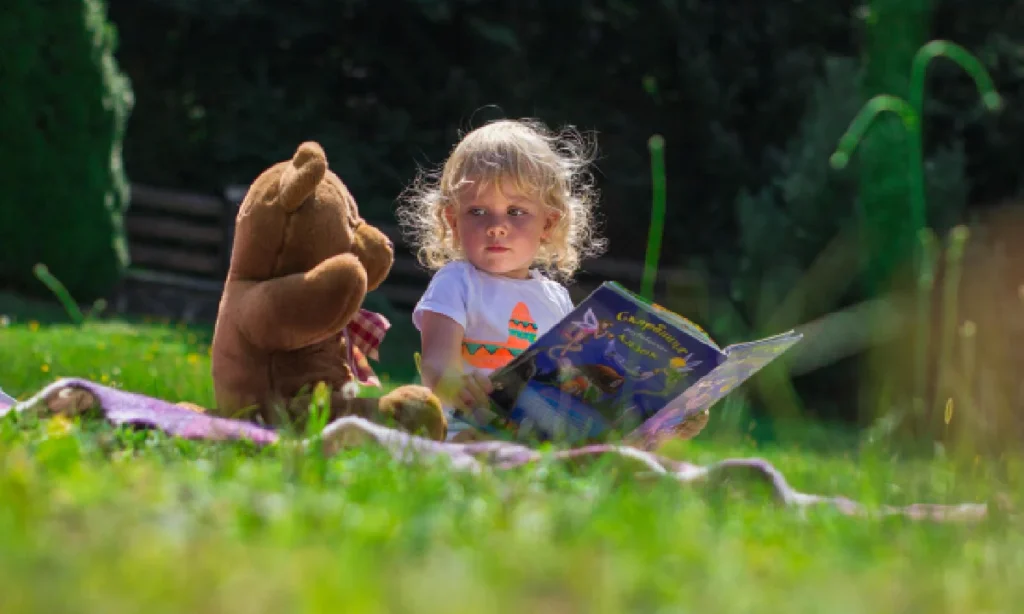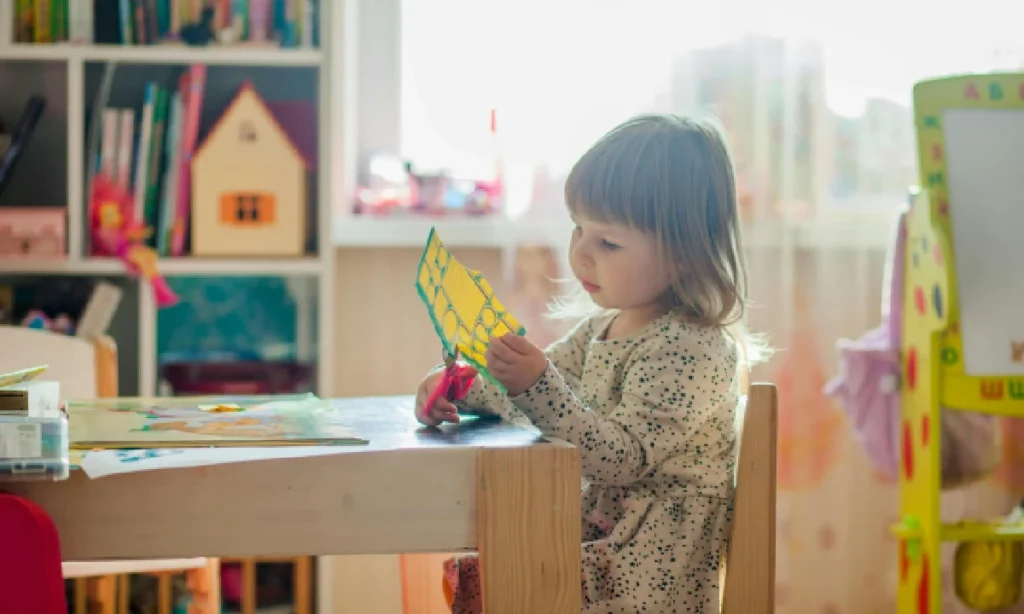![Beyond Textbooks: Murfreesboro Day School’s Revolutionary Holistic Curriculum Introduction As the landscape of education undergoes rapid transformation, the conventional focus on textbooks and rote memorization is being critically examined. The limitations of this traditional model are becoming increasingly […]](https://dayschools.org/murfreesboro/wp-content/uploads/sites/3/2024/08/New-Project-3.webp)
Table of Contents
Introduction
As the landscape of education undergoes rapid transformation, the conventional focus on textbooks and rote memorization is being critically examined. The limitations of this traditional model are becoming increasingly evident, prompting a shift toward more dynamic and inclusive teaching approaches. At the forefront of this educational evolution is Murfreesboro Day School, distinguished by its innovative holistic curriculum. This groundbreaking approach moves beyond standard academic instruction to embrace a comprehensive model that nurtures not only intellectual achievement but also emotional and social development.
Murfreesboro Day School’s holistic curriculum represents a bold departure from the conventional, textbook-centric education system. It recognizes that academic success is intertwined with emotional well-being and social competence. By addressing these interconnected facets, the school is crafting an educational experience that is both rich and balanced. Students at Murfreesboro Day School are not merely acquiring knowledge; they are developing the skills and resilience needed to thrive in all aspects of their lives. This forward-thinking approach prepares them for a future where their abilities extend beyond the classroom, equipping them with the tools to navigate a complex and ever-changing world.
Defining Holistic Education
Holistic education represents a transformative approach to teaching that aims to develop every aspect of a student’s being—academic, emotional, social, and ethical. Unlike traditional educational models that may focus primarily on intellectual growth, holistic education acknowledges the complex interplay between various dimensions of a student’s life. This approach is grounded in the belief that to truly nurture a child, education must extend beyond the mere acquisition of facts and figures.
At its core, holistic education emphasizes the interconnectedness of different areas of development. It strives to cultivate emotional intelligence by encouraging students to understand and manage their emotions effectively. Social interactions are also a focal point, as students learn the value of empathy, collaboration, and communication. Self-awareness is another critical element, as students are guided to reflect on their own learning processes and personal growth. This comprehensive model not only seeks to enhance intellectual capabilities but also aims to build character, resilience, and ethical understanding.
The evolution of holistic education can be traced back to progressive education theories, which advocated for a more rounded approach to learning. Over time, this model has matured into a sophisticated framework that addresses the diverse needs of the whole child. By integrating academic rigor with emotional and social development, holistic education prepares students to navigate life’s challenges with confidence and competence.
Curriculum Design at Murfreesboro Day School
At Murfreesboro Day School, curriculum design is not a static process but a vibrant and integrative journey. The school’s curriculum is carefully crafted to merge academic instruction with the development of emotional and social skills, creating a learning environment that is both enriching and supportive. This balanced approach ensures that students receive a well-rounded education that extends beyond traditional academic boundaries.
The curriculum at Murfreesboro Day School places a strong emphasis on nurturing critical thinking and problem-solving abilities. Students are encouraged to be active participants in their education, engaging in activities that require them to analyze, question, and apply knowledge in meaningful ways. This dynamic interaction with content fosters a deeper understanding and helps students see the relevance of their studies in real-world contexts.
In addition to academic excellence, Murfreesboro Day School’s curriculum is designed to support emotional and social growth. By integrating opportunities for self-reflection, teamwork, and ethical reasoning, the school ensures that students are not only mastering academic subjects but also developing the skills necessary to thrive in their personal and social lives. This integrative approach to curriculum design reflects the school’s commitment to preparing students for a balanced and successful future, where intellectual and personal growth go hand in hand.

Personalized Learning Experiences
Personalized learning is a fundamental aspect of the curriculum at Murfreesboro Day School, reflecting the school’s commitment to catering to the unique needs, interests, and abilities of each student. This individualized approach ensures that every learner receives an education that resonates with their personal learning style and developmental pace.
The cornerstone of this personalized approach is differentiated instruction. Educators at Murfreesboro Day School utilize a diverse array of teaching strategies to accommodate various learning preferences and strengths. Whether through hands-on activities, visual aids, or interactive discussions, teachers are adept at adjusting their methods to engage students effectively. This adaptability not only helps in addressing academic challenges but also ensures that each student remains motivated and excited about their learning journey.
By personalizing education, Murfreesboro Day School fosters an environment where students are encouraged to explore their interests and pursue their passions. This tailored learning experience enhances student engagement, as learners are able to connect their studies with their personal interests and real-life experiences. The result is a more meaningful and impactful educational experience, where students are empowered to excel both academically and personally.
Emotional and Social Learning
Emotional and social learning is a vital component of the holistic curriculum at Murfreesboro Day School, reflecting the institution’s dedication to nurturing well-rounded individuals. This aspect of the curriculum is designed to equip students with essential life skills that extend beyond academic achievement, focusing on their emotional well-being and social development.
The curriculum incorporates a range of activities and programs aimed at enhancing emotional intelligence. Students engage in self-regulation techniques that help them manage their emotions and navigate stress effectively. Mindfulness practices are integrated into the school day, encouraging students to develop self-awareness and maintain focus, both of which are crucial for personal and academic success.
In addition to emotional development, Murfreesboro Day School places a strong emphasis on social learning. Through collaborative projects and peer interactions, students are guided in developing key social skills such as empathy, communication, and teamwork. These activities not only foster a supportive and inclusive classroom environment but also prepare students to build positive relationships and contribute constructively to their communities.
By addressing both emotional and social competencies, Murfreesboro Day School ensures that students are equipped with a well-rounded set of skills. This dual focus helps students navigate interpersonal relationships and manage their emotional experiences, preparing them for a balanced and successful life both inside and outside the classroom.students to navigate interpersonal relationships and manage their emotions constructively.
Innovative Teaching Methods
At Murfreesboro Day School, innovation is at the heart of the teaching methods employed, transforming traditional education into a dynamic and engaging experience. The school’s commitment to innovative practices ensures that learning is not only interactive but also deeply relevant to real-world applications.
One of the standout methods utilized is project-based learning. This approach immerses students in real-world problems, encouraging them to work collaboratively to develop creative solutions. Through these projects, students tackle issues that are pertinent and timely, allowing them to see the practical implications of their studies. By engaging in hands-on projects, students gain valuable experience in research, teamwork, and problem-solving, all of which are essential skills in today’s rapidly evolving world.
Experiential and hands-on activities further enhance the learning process at Murfreesboro Day School. These activities provide students with practical experiences that complement theoretical knowledge. For example, rather than merely reading about scientific principles, students might conduct experiments or participate in field trips that bring their learning to life. This approach not only solidifies their understanding but also makes learning more enjoyable and memorable.

Enhancing Creativity and Critical Thinking
Creativity and critical thinking are integral to the curriculum at Murfreesboro Day School, reflecting the school’s commitment to nurturing well-rounded, innovative thinkers. These elements are woven into the fabric of the educational experience, ensuring that students are equipped to face the complexities of the modern world with confidence and originality.
Students are encouraged to engage in creative expression through a variety of mediums. From art projects and music to creative writing and drama, the curriculum provides numerous opportunities for students to explore their imaginative capabilities. This creative exploration not only fosters self-expression but also enhances students’ ability to think outside the box and approach problems from diverse perspectives.
Inquiry-based learning strategies play a crucial role in developing critical thinking skills. Students are guided to ask questions, explore different viewpoints, and solve problems independently. This approach encourages a mindset of curiosity and analytical thinking, allowing students to delve deeply into subjects and develop a thorough understanding. By promoting inquiry and exploration, Murfreesboro Day School prepares students to tackle complex challenges with confidence and ingenuity.
Through these innovative teaching methods, Murfreesboro Day School ensures that education is not only engaging but also relevant and empowering. By fostering creativity and critical thinking, the school prepares students to navigate and excel in a world that demands both intellectual agility and creative problem-solving.
The Role of Technology in Holistic Education
Technology has become an essential component of modern education, and at Murfreesboro Day School, it is seamlessly woven into the fabric of the holistic curriculum. Rather than being an isolated element, technology enhances and complements traditional teaching methods, offering new avenues for student engagement and exploration.
Digital tools at Murfreesboro Day School are integrated thoughtfully to support and enrich the learning experience. Interactive whiteboards, educational apps, and online resources are utilized to create a dynamic and interactive classroom environment. These tools not only facilitate a more engaging learning process but also enable students to access a wealth of information and resources that extend beyond the confines of traditional textbooks.
Emphasis is placed on fostering digital literacy and ensuring that students use technology responsibly. Students are guided in developing essential skills such as critical evaluation of online sources, understanding digital privacy, and practicing safe online behavior. This focus on responsible technology use prepares students to navigate the digital landscape with confidence and integrity.
The balanced integration of technology ensures that while students benefit from innovative tools and resources, the holistic approach to education remains intact. Technology is used to support the development of critical thinking, creativity, and collaboration, aligning with the broader goals of holistic education. By incorporating technology in a meaningful way, Murfreesboro Day School enriches the educational experience while maintaining a commitment to nurturing the whole child.
Community Engagement and Real-World Connections
Community engagement is a cornerstone of the curriculum at Murfreesboro Day School, reflecting the school’s dedication to connecting classroom learning with real-world experiences. By fostering strong partnerships with local organizations, the school provides students with opportunities to participate in community service and practical projects that extend learning beyond the school walls.
Students engage in a variety of community-focused activities, such as volunteering at local shelters, participating in environmental conservation projects, and collaborating with local businesses on service-oriented initiatives. These experiences not only allow students to apply their academic knowledge in real-world contexts but also instill a sense of social responsibility and civic engagement.
Through these community connections, students gain a broader perspective on their role in society. They learn to appreciate the impact of their actions on others and the community, developing empathy and a sense of purpose. The integration of community involvement into the curriculum helps students understand the relevance of their education in addressing real-world issues, fostering a deeper appreciation for their contributions to society.

Measuring Success and Outcomes
Evaluating the success of a holistic curriculum requires a comprehensive approach that encompasses both academic performance and personal development. Murfreesboro Day School employs a range of assessment tools to gauge the effectiveness of its educational practices and ensure that the curriculum meets its goals.
Student feedback is a vital component of this evaluation process. Regular surveys and assessments allow students to share their experiences and perspectives on their learning journey. Additionally, parent surveys provide valuable insights into the impact of the curriculum on students’ overall development and well-being.
Educator evaluations also play a crucial role in measuring success. Teachers assess students’ academic progress, emotional growth, and social skills, providing a holistic view of each student’s development. This multifaceted approach ensures that the curriculum is continually refined and adapted to meet the evolving needs of students.
The feedback gathered from students, parents, and educators is used to make informed decisions about curriculum enhancements and improvements. By integrating diverse perspectives, Murfreesboro Day School ensures that its holistic approach remains effective and responsive, continually striving to provide an enriching and supportive educational experience.
Conclusion
The transformative impact of Murfreesboro Day School’s holistic curriculum is both profound and far-reaching, transcending conventional academic benchmarks. By adopting a comprehensive approach that encompasses every facet of student development—academic, emotional, social, and ethical—the school is not merely preparing students for the next grade but equipping them for a successful and fulfilling future.
This innovative educational model goes beyond rote memorization and standardized testing. It recognizes that true learning involves nurturing the whole child, fostering critical thinking, creativity, and emotional resilience. Murfreesboro Day School’s curriculum empowers students to connect their classroom experiences with real-world applications, promoting a sense of purpose and civic responsibility.
As the landscape of education evolves, Murfreesboro Day School’s commitment to holistic education stands out as a beacon of innovation and excellence. It sets a benchmark for how schools can integrate diverse elements of development into a unified educational experience. In doing so, the school is not just preparing students to excel academically but to become well-balanced, adaptable individuals ready to navigate and thrive in an interconnected and ever-changing world.
The future of education lies in the ability to cultivate students who are not only knowledgeable but also resilient, empathetic, and equipped to contribute meaningfully to society. Murfreesboro Day School exemplifies this vision, demonstrating that a holistic approach to education is not just a possibility but a powerful reality that shapes the leaders of tomorrow.






